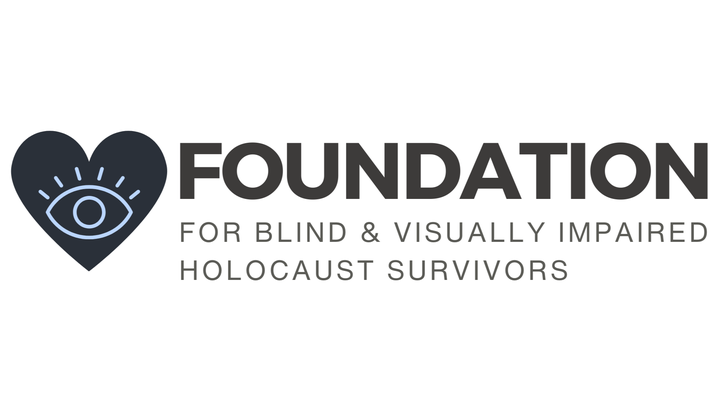
Foundation for Blind & VI Holocaust Survivors
Tax deductible
Foundation for Blind and Visually Impaired Holocaust Survivors is through The Giving Back Fund, a 501(c)3 non-profit.
There is an urgent need to support Holocaust survivors that are experiencing vision loss. Here are the facts:
• 20% of all individuals 85+ have visual impairments
• 1/3 of Holocaust survivors in the US are in poverty - see article here
• There are around 245,000 Holocaust survivors still alive in 2024
Our goal is to provide Holocaust survivors that are experiencing vision loss with the urgent assistance that they need and deserve. Vision loss services throughout the country are notoriously known for lacking funding to support people's needs, which is why we exist. We believe that Holocaust survivors deserve to have quality assistance for their vision loss.
Aria, the founder, has her Master’s in Vision Science from University of Montreal’s School of Optometry and is a Certified Vision Rehabilitation Therapist through Academy for Certification of Vision Rehabilitation & Education Professionals.
The foundation is inspired by her great uncle, who is a Holocaust survivor with macular degeneration. Another inspiration for the foundation is a Holocaust survivor whom Aria was matched with when volunteering with Jewish Family Services. It turns out that the survivor she was paired with has macular degeneration. Since vision loss rehabilitation is Aria's profession, she was able to help the survivor adapt to sight loss by providing magnification devices and other equipment (which was not covered by the local vision rehabilitation services). Aria's mission as a Certified Vision Rehabilitation Therapist is now to provide assistance to as many Holocaust survivors with vision loss as possible.
Examples of assistance provided by a Certified Vision Rehabilitation Therapist include:
- electronic magnification devices, or glass magnifiers, to read books and mail
- if an individual's vision loss is too significant to benefit from magnification, then devices that convert text-to-speech to to read mail are helpful, as well as a Talking Books Player to listen to books
- tactile markings to use the microwave and other appliances
- talking watches or large print watches
- emotional support/vision loss support groups
- transportation assistance
- a landline telephone with large print numbers (it is essential to be able to make phone call in an emergency)
- training on how to use 'Siri' or 'OK Google' to make phone calls on a smartphone
- training on vision loss safety
Organizer
Foundation for Blind and Visually Impaired Holocaust Survivors
Organizer
Bonita Springs, FL
The Giving Back Fund
Beneficiary